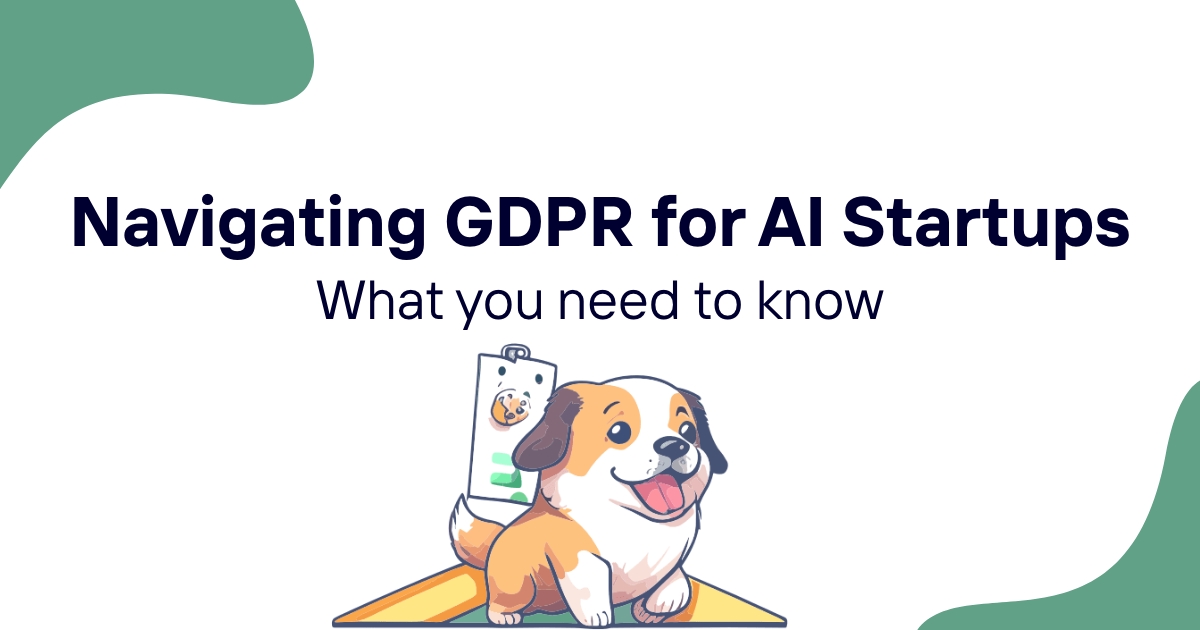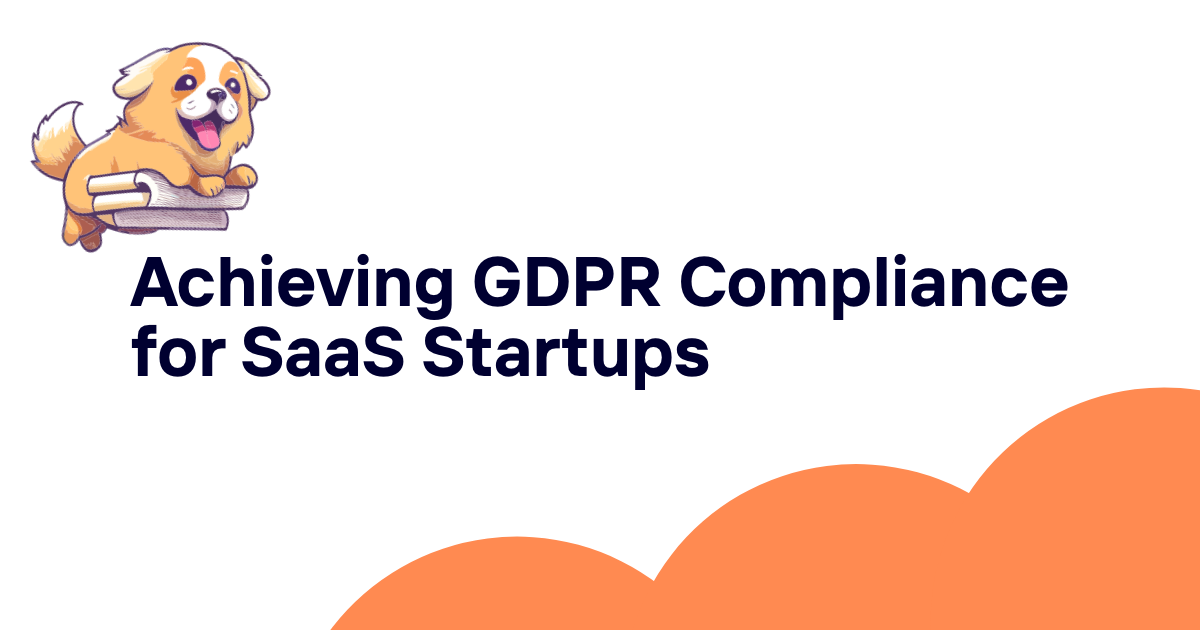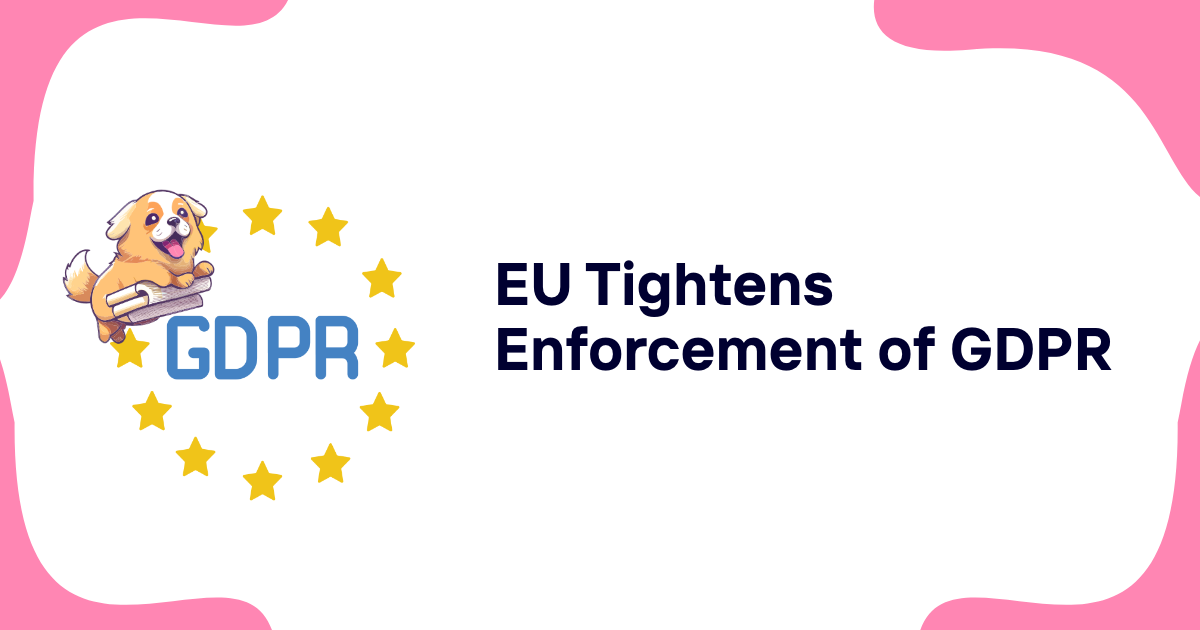Table of Contents
- Introduction
- A Shifting Landscape: The Rise of AI and Privacy Concerns
- Unpacking GDPR: Key Principles and Impact on AI Startups
- A Balancing Act: Privacy vs. Innovation
- Strategies for Compliance: Embracing Privacy by Design
- Global Perspectives: A Patchwork of Regulations
- The Way Forward: Fostering a Supportive Ecosystem
- Conclusion
Introduction
In the relentless pursuit of innovation, artificial intelligence (AI) has emerged as a transformative force, reshaping industries and offering unprecedented opportunities for growth and efficiency. However, this remarkable technological advancement has also ignited intense debates surrounding privacy and data protection. As AI systems increasingly rely on vast troves of personal data to fuel their algorithms, concerns have arisen about the potential misuse and exploitation of sensitive information.
Enter the General Data Protection Regulation (GDPR), a groundbreaking legislation enacted by the European Union to safeguard individuals' privacy rights and establish a robust framework for data protection. While the GDPR's principles are laudable, their implementation has sparked a complex tango for AI startups, who must navigate a delicate balance between harnessing the power of data-driven innovation and ensuring compliance with stringent privacy regulations.
A Shifting Landscape: The Rise of AI and Privacy Concerns
The rapid proliferation of AI technologies has ushered in a new era of data-driven decision-making, revolutionizing industries ranging from healthcare to finance and beyond. However, this progress has not been without its share of apprehensions. As AI systems become increasingly sophisticated, their reliance on vast quantities of personal data has raised legitimate concerns about privacy violations, data breaches, and potential discrimination.
Consumers, cognizant of the value of their personal information, are demanding greater transparency and control over how their data is collected, processed, and utilized. This shifting landscape has prompted governments and regulatory bodies to respond with comprehensive data protection measures, aiming to strike a balance between fostering innovation and safeguarding individuals' fundamental rights to privacy.
Unpacking GDPR: Key Principles and Impact on AI Startups
The GDPR, which came into effect in 2018, introduced a robust set of principles and obligations designed to protect personal data and ensure its lawful processing. While these principles are grounded in noble intentions, their implementation has presented unique challenges for AI startups, who often find themselves at the forefront of data-driven innovation.
The Principle of Purpose Limitation
One of the core tenets of the GDPR is the principle of purpose limitation, which stipulates that personal data must be collected for specified, explicit, and legitimate purposes, and not further processed in a manner incompatible with those purposes. This principle poses a significant challenge for AI startups, as their algorithms often thrive on the ability to repurpose and reuse data in innovative ways, potentially diverging from the original purpose for which the data was collected.
The Right to Erasure
Another key aspect of the GDPR is the "right to erasure," commonly referred to as the "right to be forgotten." This principle grants individuals the right to request the deletion of their personal data under certain circumstances. While this provision aims to empower individuals with greater control over their personal information, it can create complexities for AI startups. The erasure of training data could potentially undermine the integrity and effectiveness of their machine learning models, potentially hindering their ability to deliver accurate and reliable solutions.
Resource Implications for Startups
Compliance with the GDPR's stringent requirements can impose significant resource burdens on AI startups, many of which operate with limited budgets and personnel. Startups may need to allocate substantial resources towards implementing robust data protection measures, hiring dedicated data protection officers, and ensuring ongoing monitoring and maintenance of their AI systems. This diversion of resources can potentially impede innovation and hinder the growth and competitiveness of these startups within the AI landscape.
A Balancing Act: Privacy vs. Innovation
The tension between privacy protection and fostering innovation is a delicate balance that policymakers and AI startups must navigate carefully. On one hand, robust data protection measures are essential to safeguard individuals' fundamental rights and prevent the misuse of personal information. On the other hand, overly restrictive regulations could stifle innovation and hinder the development of potentially transformative AI solutions that could benefit society as a whole.
This delicate equilibrium requires a nuanced approach, recognizing the legitimate concerns surrounding privacy while simultaneously creating an enabling environment for responsible and ethical AI development. Striking the right balance is a complex endeavor, necessitating ongoing dialogue, collaboration, and a willingness to adapt and evolve as new challenges and opportunities arise.
Strategies for Compliance: Embracing Privacy by Design
To navigate the complexities of GDPR compliance, AI startups must adopt a proactive and innovative approach, embracing the principles of "privacy by design." This concept involves integrating data protection considerations into the very fabric of an AI system, from its conception to its deployment and ongoing maintenance.
Anonymization and Pseudonymization
One effective strategy for mitigating privacy risks is the implementation of anonymization and pseudonymization techniques. Anonymization involves the irreversible removal of identifiable information from personal data, rendering it impossible to re-identify individuals. Pseudonymization, on the other hand, involves the replacement of identifiable data with pseudonyms or artificial identifiers, allowing for data processing while reducing the risk of re-identification.
These techniques can enable AI startups to leverage the power of personal data while minimizing privacy risks, striking a balance between innovation and data protection.
Privacy-Enhancing Technologies (PETs)
Privacy-Enhancing Technologies (PETs) are a set of tools and techniques designed to safeguard personal data and minimize privacy risks. These technologies include secure multi-party computation, homomorphic encryption, and differential privacy, among others. By integrating PETs into their AI systems, startups can process personal data while preserving privacy and reducing the risk of unauthorized access or misuse.
Data Minimization and Purpose Limitation
Adhering to the principles of data minimization and purpose limitation can also aid in GDPR compliance. Startups should strive to collect and process only the minimal amount of personal data necessary to achieve their legitimate purposes. Additionally, they should clearly define and communicate the purposes for which data is collected and ensure that subsequent processing aligns with those stated purposes.
By embracing these strategies, AI startups can demonstrate their commitment to responsible data practices, fostering trust among consumers and stakeholders while simultaneously fostering innovation within the boundaries of regulatory compliance.
Global Perspectives: A Patchwork of Regulations
The challenges posed by the intersection of AI and privacy extend far beyond the boundaries of the European Union. As AI technologies continue to proliferate globally, a patchwork of regulations and initiatives has emerged, reflecting the diverse priorities and approaches of different nations and regions.
The EU's Approach: The AI Act and GDPR
In addition to the GDPR, the European Union has proposed the AI Act, a comprehensive regulatory framework designed to govern the development and deployment of AI systems. While the AI Act adopts a risk-based approach, it also aims to align with the GDPR's principles of data protection and privacy.
However, potential overlaps and conflicts between the two regulations have raised concerns about potential ambiguities and inconsistencies. Careful coordination and harmonization will be crucial to ensure a coherent and effective regulatory landscape for AI startups operating within the EU.
The US Approach: A Decentralized Landscape
In contrast to the EU's centralized approach, the United States has adopted a more decentralized and fragmented strategy for regulating AI and data privacy. Individual states have implemented their own privacy laws, such as the California Consumer Privacy Act (CCPA), resulting in a patchwork of regulations that can be challenging for startups to navigate.
At the federal level, initiatives like the proposed American Data Privacy and Protection Act (ADPPA) aim to establish a comprehensive national standard for data privacy. However, the progress of such legislation has been slow, leaving AI startups to navigate a complex and evolving regulatory landscape.
International Cooperation and Standardization
Recognizing the global nature of AI and data privacy challenges, international organizations and standardization bodies have taken steps to promote cooperation and establish common frameworks. The United Nations' AI Advisory Board, the Organisation for Economic Co-operation and Development (OECD), and the International Organization for Standardization (ISO) are among the entities working towards harmonizing approaches and fostering international collaboration in AI governance and data protection.
These efforts aim to create a more cohesive and interconnected global regulatory landscape, enabling AI startups to operate across borders while adhering to consistent and universally recognized standards for privacy and ethical data practices.
The Way Forward: Fostering a Supportive Ecosystem
While the challenges posed by GDPR compliance are significant, they also present an opportunity for policymakers and the AI startup community to collaborate and foster a supportive ecosystem that balances innovation and data protection. By actively engaging with startups and understanding their unique needs and constraints, regulators can develop guidance and frameworks that are tailored to the realities of the AI startup landscape.
Furthermore, the establishment of regulatory sandboxes and cross-industry dialogue can facilitate experimentation, knowledge-sharing, and the development of best practices. By fostering an environment of open communication and collaboration, AI startups can actively contribute to shaping the regulatory landscape, ensuring that their perspectives and insights are incorporated into policymaking processes.
Additionally, providing startups with adequate resources, such as access to legal and technical expertise, can help alleviate the resource burdens associated with GDPR compliance. By empowering startups with the tools and knowledge necessary to navigate the complexities of data protection regulations, policymakers can cultivate an ecosystem that supports responsible innovation while safeguarding individual privacy rights.
Conclusion
The intersection of AI and data privacy represents a complex and evolving landscape, one that requires careful navigation and a commitment to striking a delicate balance between innovation and data protection. As AI technologies continue to reshape industries and unlock new frontiers of potential, it is imperative that we address the legitimate concerns surrounding privacy and data misuse.
The GDPR, while presenting challenges for AI startups, also serves as a catalyst for responsible and ethical data practices. By embracing the principles of privacy by design, leveraging privacy-enhancing technologies, and fostering a culture of data minimization and purpose limitation, startups can demonstrate their commitment to upholding fundamental privacy rights while harnessing the transformative power of AI.
Ultimately, the path forward lies in collaborative efforts between policymakers, regulatory bodies, and the AI startup community. By fostering an environment of open dialogue, knowledge-sharing, and mutual understanding, we can create a supportive ecosystem that nurtures innovation while safeguarding individual privacy rights. Through this intricate dance, we can unlock the full potential of AI while ensuring that the values of privacy and data protection remain deeply intertwined with our technological progress.
As always ComplyDog is on hand to support startups navigating the tricky topic of GDPR. Activate your account and test ComplyDog for 14 days free.


















